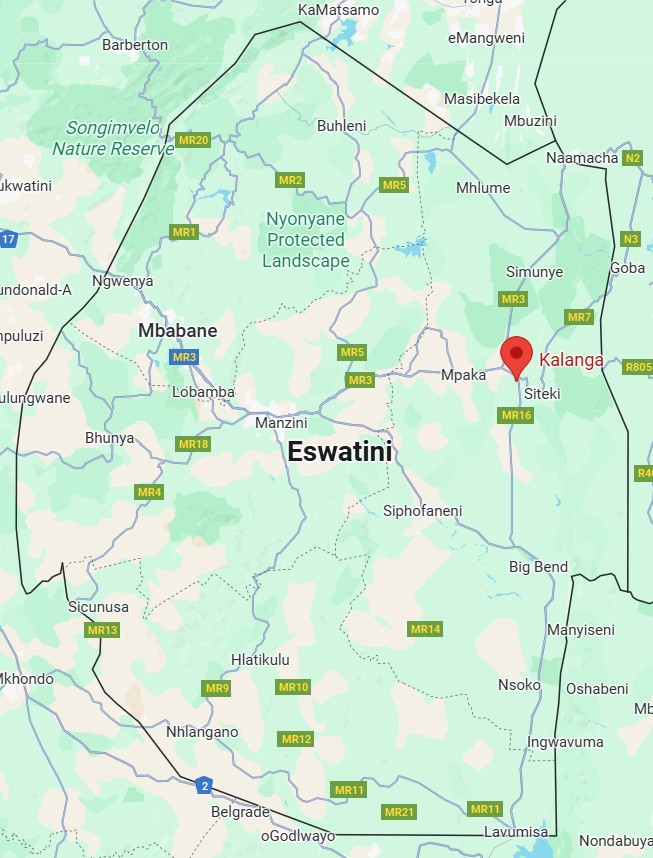Mbabane – Starting a small business in kaLanga chiefdom could cost you more than just your savings after allegations surfaced that it could cost each resident E22 000 fees prior to laying the first brick but some residents complain that this bars them from accessing essential services and stimulating the economy.
The Lubombo-based community’s inner council has been fingered as demanding hefty fees from anyone hoping to run a home-based income project, even if they have already pledged allegiance to the chiefdom through the traditional kukhonta process of acquiring land.
Several residents of kaLanga, located about 10 kilometres from Siteki town, have reported that any form of business activity at their homesteads, such as backyard poultry farming, welding, or small-scale production, is not permitted unless they first pay the E22 000 fee to the chiefdom.
One resident who had started building a poultry structure for 300 broiler chickens was forced to abandon the project when members of the inner council visited his home. They asked whether he had paid the fee, and when he responded to the negative, he was told the project could not continue. According to the council, the original inkhomo yokukhonta paid by his parents covered residential use only, not commercial activity.
The traditional inkhomo yokukhonta refers to a cow offered as a sign of allegiance when families settle in a chiefdom. However, kaLanga inner council now argues that this payment is not enough for families who want to use their land for income-generating purposes. A separate payment of E22 000 is required if a resident wants to run a business from home.
Complicating the issue is kaLanga’s long-standing leadership dispute.

Chief Jozane Maziya, who now leads the chiefdom and serves as a Senator, was officially blessed by His Majesty King Mswati III on 12 October 2022. He succeeded his father, the late Chief Mlimi, who passed on in the 1980s. After his death, his daughter served as acting chief until her passing. Following this, leadership disagreements emerged, resulting in factions forming within the community.
During the leadership vacuum, one faction, believed to be led by individuals related to the late acting chief, held meetings at her homestead and allocated land to residents. Those who received land or pledged allegiance during this period to the faction are now being told that they must either pay the E22 000 fee or offer a new inkhomo yokukhonta to be recognised under the current leadership of Chief Jozane.
Residents say those who have not paid the allegiance fee to the current ruling house are being denied access to important administrative services. Chiefdom stamps, which serve as valid proof of residence in Eswatini, are reportedly being withheld. Without a chiefdom stamp, residents cannot access services such as school enrolment, banking, or government aid applications.
One resident said his child could not be registered at school because the family could not obtain a chiefdom stamp. Another resident said his attempt to register a home-based business was blocked for the same reason.
Lubombo Regional Administrator Themba Msibi declined to comment on the issue, saying no formal complaints had been submitted to his office. “So far, we have not received any written grievances from the community of KaLanga. If anyone has concerns, we advise them to follow the right procedures and submit their complaints through the proper channels,” he said.
When reached for comment, indvuna Mavuso of KaLanga said he could not discuss internal community matters through the media and urged residents to bring their concerns directly to the umphakatsi. “Tindzaba tendlunkhulu titsamelwa endlunkhulu kuphela. Ngabe ngiyona nangingabese ngitikhuluma emaphepheni,” he said, meaning that traditional affairs are handled within traditional structures and not through public platforms.
Residents say the requirement to pay E22 000 has caused tension in the community. Many believe it is being used to reassert control over those who had aligned with the opposing faction before the current chief was officially installed. Others argue that the fee is too high for an economically struggling rural community.
“People just want to start small businesses to survive,” said one resident. “They are not asking for commercial plots or government loans. They are trying to make a living with what little they have, but they are being blocked unless they pay this fee.”
While residents acknowledge the role of traditional structures in land governance, they feel the E22 000 fee is excessive and unfair, especially when many had already gone through the formal kuhonta process in good faith.
Some fear that the situation will further divide the community and create long-term problems for residents who were allocated land during the disputed leadership period. “This is not just about money,” one resident said. “It’s about recognition. It’s about whether we are seen as legitimate members of this community.”
As of now, those unable to pay the E22 000 fee or offer a new cow remain unable to operate home-based businesses or access certain services tied to chiefdom approval. With no official intervention from the regional administration and no communication from the inner council, the affected residents remain in limbo.











Discussion about this post